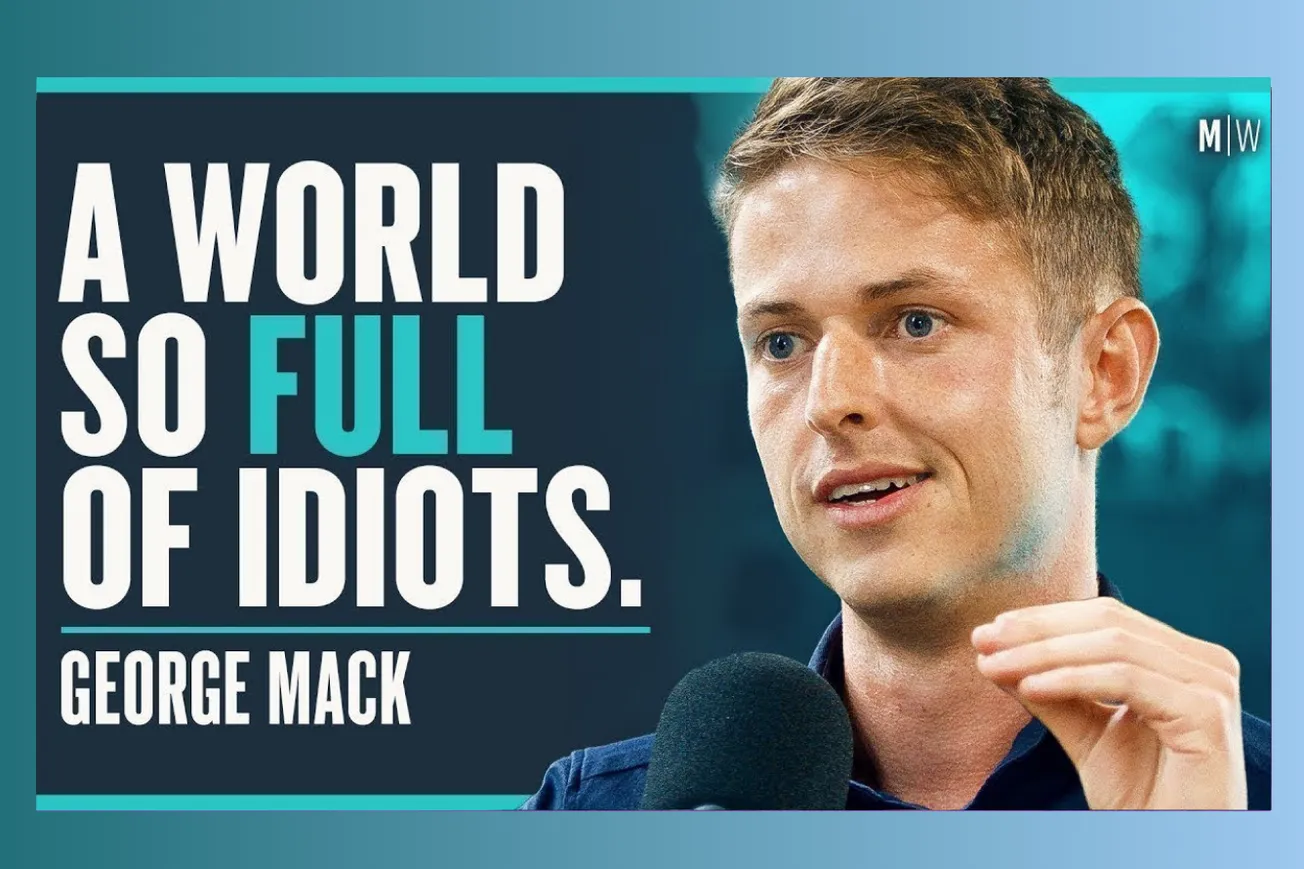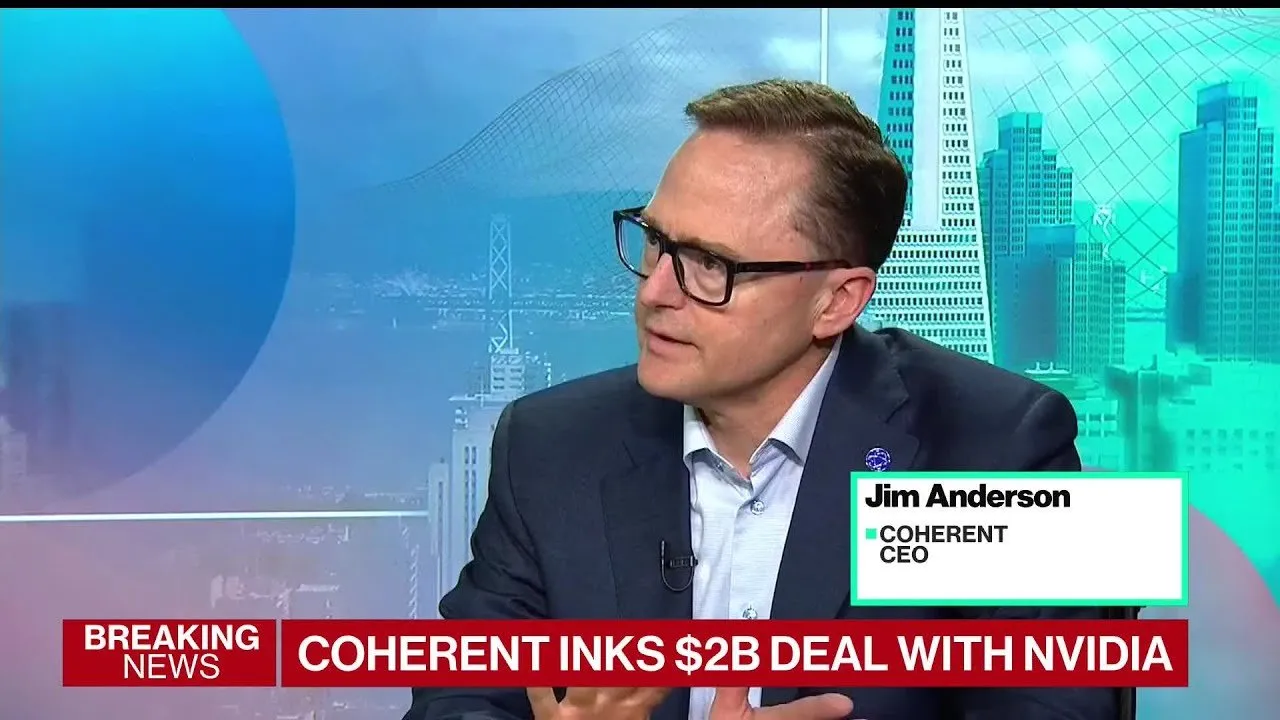Table of Contents
George Mack reveals the psychological mechanisms driving modern irrationality, from the Keynesian Beauty Contest to meme warfare, explaining how perception shapes reality in our hyperconnected world.
Key Takeaways
- The Keynesian Beauty Contest explains why people predict what others will think rather than expressing genuine opinions
- Abilene Paradox shows how groups make decisions nobody actually wants because everyone assumes others approve
- Reflexivity creates feedback loops where perceptions shape reality, which then shapes new perceptions in endless cycles
- Most successful memes compress mass emotion into simple, contagious concepts that bypass rational analysis
- Leverage remains misunderstood because it requires engineering knowledge that doesn't translate into sticky cultural memes
- Information diets filled with "Trojan content" harm decision-making while appearing beneficial and educational
- The forgetting paradox reveals we remember almost zero thoughts from yesterday despite having 10,000-70,000 daily thoughts
- High agency individuals find creative solutions using available resources rather than accepting conventional limitations
- Elections will increasingly be decided by meme warfare rather than policy substance as social media dominates communication
- Calm emerges as the most useful emotional state across virtually all life situations and contexts
Timeline Overview
- 00:00-15:00 — Keynesian Beauty Contest levels of thinking, Abilene Paradox group dynamics, reflexivity between perception and reality, social anxiety recursive loops
- 15:00-30:00 — Internet communities vs. in-person depth, meme definition and stickiness factors, leverage concept problems, compression of emotion into contagious ideas
- 30:00-45:00 — Meme industrial complex evolution, mainstream media vs. decentralized creation, counter-meme prediction strategies, unfilled meme market gaps
- 45:00-60:00 — Cybercrime importance despite boring presentation, salary inadequacy for UK cyber security chief, emotional meme algorithm mechanics
- 60:00-75:00 — Information diet optimization, Trojan content identification, post-content clarity evaluation, algorithmic warfare timeline predictions
- 75:00-90:00 — Forgetting paradox implications, memory capture importance, CBT triangle applications, "not true but useful" belief framework
- 90:00-105:00 — High agency examples, James Cameron library strategy, Gap vs. Gain mindset, slow success strategy benefits
- 105:00-120:00 — Calm as optimal emotional state, hidden vs. observable metrics, meditation thought loops, practical implications for daily life
The Keynesian Beauty Contest: Why Nobody Says What They Really Think
George Mack's explanation of the Keynesian Beauty Contest reveals the hidden psychology behind modern discourse. This concept operates on three levels that explain why authentic communication becomes increasingly rare in group settings.
Level one represents genuine personal opinion: Chris ranks 100 people by attractiveness based on his actual preferences. Level two introduces social calculation: Chris predicts what everyone else will think, leading to dramatically different rankings. Level three adds recursive complexity: Chris factors in that everyone else knows everyone else is playing the prediction game.
"When people are aware of other people's perceptions it completely shapes things," Mack observes. This dynamic explains political polling failures, where Liberal Democrats might poll well individually but lose votes because people assume others won't vote for them, creating self-fulfilling prophecies of defeat.
The same mechanism drives social media behavior. Women downplay educational achievements when they know others will see their responses, fearing female intersexual competition. Everyone tailors their authentic thoughts to anticipated social reactions, creating a hall of mirrors where genuine opinion becomes impossible to locate.
- Level two thinking dominates modern discourse as people optimize for perceived group approval rather than personal truth
- Political voting patterns reflect prediction games about other voters rather than genuine candidate preferences
- Social media responses vary dramatically between private and public settings due to audience awareness
- The recursive nature of level three thinking creates increasingly complex social calculations that obscure authentic preferences
- Business decisions often fail because executives assume others support ideas nobody actually likes
- Group dynamics consistently produce outcomes that satisfy no individual group member's actual desires
This psychological trap explains why authentic leadership and genuine discourse feel so rare in contemporary society.
The Abilene Paradox: How Smart Groups Make Stupid Decisions
The Abilene Paradox represents one of the most devastating failure modes in group decision-making. Mack describes it as "a situation in which a group makes a decision that is contrary to the desires of the group's members because each member assumes the others approve of it."
The business application proves particularly revealing: "Someone suggests recruiting a trans influencer as the face of the brand. Each member has misgivings about this but assumes the others will think that they are transphobic if they speak out so everyone approves the idea despite no one liking it."
This paradox extends beyond boardrooms into families, social groups, and entire societies. Every member of a North Korean family might hate communism but never mention this because each assumes others approve. Dinner parties extend unnecessarily because nobody wants to be first to leave, despite everyone wanting to go home.
The solution requires what Mack calls "high agency exit" - someone willing to break the silence and reveal that the emperor has no clothes. However, this demands psychological courage because the first person to speak truth risks social punishment.
- Groups consistently make decisions that satisfy literally zero individual members due to false assumption cascades
- Business meetings produce terrible ideas because participants fear being labeled as bigoted, backwards, or disruptive
- Social gatherings extend beyond everyone's comfort zone because nobody models the acceptable exit behavior
- Political systems can maintain unpopular policies when citizens incorrectly assume others support the status quo
- The first person to break group consensus risks social punishment despite providing valuable leadership
- Organizations need deliberate processes to surface authentic individual opinions before group discussion begins
Understanding this paradox provides a framework for recognizing when apparent consensus masks universal dissatisfaction.
Reflexivity: When Perceptions Become Reality
George Soros's concept of reflexivity, popularized through his financial success, explains how human systems differ fundamentally from natural phenomena. Mack illustrates the distinction: "The weather is going to be rainy today - that's not reflexive because my thinking doesn't shape reality. But if you go on TV and say 'this is a revolutionary moment,' the statement impacts reality."
This creates feedback loops between perception and reality that generate increasingly complex social dynamics. Meme stocks exemplify reflexivity perfectly: people buy because they think others will buy, which drives prices up, which confirms the original perception, creating self-reinforcing cycles.
The human brain evolved primarily to navigate these social calculations rather than understand objective reality. Robin Dunbar's research suggests our large brains developed not for tool use or survival skills, but for tracking complex relationship webs: "George is friends with Dean but Dean used to be friends with George's ex-friend Josh and now Dean and Josh are enemies."
Modern social media amplifies reflexivity exponentially. Online behavior shapes offline reality, which influences online behavior, creating recursive loops that can spiral out of control within hours.
- Financial markets demonstrate pure reflexivity as investor perceptions directly influence the asset values they're trying to predict
- Social anxiety creates recursive loops where nervousness triggers negative reactions that confirm the original fear
- Meme stocks succeed because collective belief in their success becomes self-fulfilling through coordinated buying behavior
- Political movements gain power when perceived momentum attracts supporters who create actual momentum
- The human brain primarily functions as a "Facebook friend tracker" for managing complex social relationship dynamics
- Modern platforms amplify reflexive feedback loops to dangerous extremes through global, instantaneous communication
Understanding reflexivity provides crucial insight into why human systems behave so differently from natural phenomena.
Meme Warfare: How Elections Get Decided by Viral Ideas
Mack predicts that future elections will be "decided by who has the best memes not who has the best policies" - a trend already visible in recent political campaigns. The most effective memes compress massive emotional content into simple, contagious packages that bypass rational analysis.
"Okay Boomer" perfectly illustrates meme mechanics. Two words compress all millennial and Gen Z frustration about being condescended to by a generation they view as having created massive problems. "Karen" similarly packages complex feelings about entitled behavior into a universally understood concept.
The transition from mainstream media's centralized meme control to social media's decentralized creation represents a fundamental power shift. Previously, figures like Rupert Murdoch controlled narrative through traditional gatekeepers. Now, anonymous users on Reddit and 4chan create content that shapes global discourse.
This democratization creates both opportunities and dangers. Positive movements can emerge organically, but so can destructive ideologies. The speed of global internet adoption means a meme can achieve "24-hour infestation of the entire world" with unprecedented reach and impact.
- Successful political memes compress complex emotions into memorable, shareable concepts that spread faster than policy discussions
- The transition from centralized to decentralized meme creation fundamentally redistributes cultural and political power
- Anonymous platforms like Reddit and 4chan often originate memes that eventually influence mainstream discourse and decision-making
- Global internet adoption creates potential for worldwide ideological infection within single news cycles
- Traditional media now primarily produces accidental memes rather than deliberately crafted viral content
- Future political success will require understanding meme mechanics as much as traditional campaign strategy
The shift toward meme-driven politics represents a fundamental change in how democratic societies make collective decisions.
Why Leverage Is a Terrible Meme Despite Being Crucial
Mack identifies a critical gap between importance and memetic success using leverage as his primary example. Despite being fundamental to modern success, leverage fails as a meme because it requires engineering knowledge that doesn't translate into sticky cultural concepts.
His "Hung Over Jeff Bezos vs. World's Hardest Working Man" thought experiment illustrates the problem. While the hypothetical hardest working person grinds 24 hours daily, Bezos lounging on his yacht with a hangover achieves equivalent output of 244 million work hours through leverage multipliers.
The calculation breaks down as follows: Amazon's 1.6 million employees working 8 hours equals 20.8 million hours. Factory robots and AWS servers add 55 million hours of automated work. Marketing leverage provides 95 million hours worth of door-knocking equivalent. Media leverage through Twitch and Prime generates 82 million storytelling hours.
"The reason why Leverage is a bad meme is because you need other topics and other realizations from engineering to understand it which prevents it from spreading," Mack explains. This creates a dangerous knowledge gap where the most important concepts remain confined to Silicon Valley circles.
- Engineering concepts like leverage remain poorly understood despite determining success in the modern economy
- The "hardest working person" cultural meme actively harms people by focusing attention on effort rather than multiplication
- Jeff Bezos achieves more impact while hungover than others achieve through 24-hour workdays due to leverage systems
- Educational systems emphasize linear effort over exponential thinking, creating cultural resistance to leverage concepts
- Important ideas often fail to spread because they require prerequisite knowledge that makes them inherently unsticky
- Silicon Valley's advantage partly stems from better cultural memes around multiplication rather than just addition
This meme failure creates systematic disadvantages for people trapped in "hard work" mindsets without access to leverage frameworks.
Information Diet and Trojan Content
Mack introduces the concept of "Trojan content" - information that appears beneficial but actually harms decision-making. His friend stopped consuming business podcasts despite running a successful company because they triggered shiny object syndrome rather than providing useful insights.
"The problem with him with the business podcast is that it was like Trojan content... he felt it was good for him but it was actually harming him," Mack explains. Unlike obviously harmful content like junk food, Trojan content deceives people into believing they're being productive while actually damaging their focus.
This extends to news consumption, where Mack realized that staying informed on current events provided little actual value: "By the time it's on Twitter it's like the peak stock price... by the time it's everywhere it's as big as it's going to get." The "perpetual now" creates false urgency around information that becomes irrelevant within weeks.
His YouTube audit revealed the scope of the problem: reviewing his last 100 videos, 72% fell into the "regret" category. This demonstrates how compelling content in the moment often produces negative after-effects, similar to post-coital clarity but for information consumption.
- Business podcasts can trigger counterproductive shiny object syndrome despite appearing educational and professional
- Current events consumption often provides minimal value while creating false sense of staying informed
- "Post-content clarity" reveals that most compelling content produces negative emotional after-effects once consumed
- The "perpetual now" creates artificial urgency around information that quickly becomes irrelevant
- YouTube's "Don't recommend channel" feature provides tactical tool for curating better information diets
- Most people consume information reactively rather than strategically, leading to poor mental nutrition choices
Recognizing Trojan content requires honest post-consumption evaluation rather than relying on in-the-moment appeal.
The Forgetting Paradox: Why Memory Matters More Than We Realize
Mack's meditation experiences led to a startling realization about human memory: despite having 10,000-70,000 thoughts daily, most people remember virtually zero specific thoughts from yesterday. This "forgetting paradox" reveals how much mental content disappears without trace.
"How many thoughts like clear sentence thoughts do you remember from yesterday? Very few almost none," he observes. This extends beyond individual psychology to societal level, where we forget how much we've forgotten because by definition, forgotten information leaves no trace.
The implications prove profound for personal development and relationship building. Mack advocates for more photo-taking and experience documentation, having previously avoided this due to associating photography with social media vanity. He realized the importance of capturing memories when reflection on meaningful experiences revealed how much detail had already faded.
This connects to his broader point about forcing thoughts into concrete form through writing or conversation. Unexpressed ideas remain cloud-like and ephemeral, while written or spoken thoughts gain clarity and permanence.
- Human memory retention of daily thoughts approaches zero despite processing thousands of ideas daily
- The forgetting paradox operates societally as collective amnesia about how much information we've lost
- Photo-taking and experience documentation provide crucial memory enhancement despite potential associations with vanity
- Forcing thoughts into written or spoken form transforms ephemeral ideas into concrete, analyzable concepts
- Most people underestimate how quickly meaningful experiences fade from detailed memory
- Systematic memory capture becomes increasingly valuable as life experience accumulates over decades
Understanding the forgetting paradox emphasizes the importance of deliberate memory creation and idea preservation.
High Agency Examples: Creative Problem-Solving in Action
Mack collects examples of "high agency" individuals who find creative solutions rather than accepting conventional limitations. James Cameron's film school story exemplifies this mindset: unable to afford formal education, he discovered that film students deposit their dissertations in libraries, so he photocopied them at night to teach himself the entire curriculum.
The Silk Road capture story provides another illustration. While the FBI, CIA, and DEA failed to locate the infamous dark web marketplace founder using sophisticated surveillance, a single tax inspector succeeded through basic Google searches. He found the earliest Silk Road promotional post, traced it to an "Altoid" username, contacted forum administrators, and discovered the email was ross@gmail.com - leading directly to Ross Ulbricht.
These examples share common elements: identifying unconventional approaches, using freely available resources creatively, and refusing to accept that expensive or exclusive access is required for success.
- James Cameron circumvented expensive film school by creatively accessing the same information through library photocopying
- One tax inspector outperformed multiple government agencies by using simple Google searches rather than sophisticated surveillance
- High agency individuals consistently find alternative pathways when conventional routes appear blocked or expensive
- Creative resource utilization often outperforms expensive, sophisticated approaches to problem-solving
- Successful people refuse to accept that expensive or exclusive access determines outcomes
- Simple tools used creatively frequently defeat complex systems designed by experts
High agency thinking involves questioning fundamental assumptions about what resources are truly necessary for achievement.
Gap vs. Gain: The Psychology of Satisfaction
Mack enthusiastically endorses the "Gap vs. Gain" framework as superior to traditional abundance/scarcity mindset concepts. This model identifies two ways of measuring progress: comparing yourself to where you want to be (the gap) or comparing yourself to where you started (the gain).
The gap creates infinite dissatisfaction because each achievement simply moves the goalpost further away. Someone winning a billion-dollar lottery faces a unique tragedy: "How are you ever going to have a better day than the day you woke up and found out that you'd won a billion dollars?" Success becomes a curse when it establishes new minimum standards.
The gain approach measures progress from origin points rather than destination fantasies. This creates sustainable satisfaction because past achievements remain stable reference points rather than moving targets.
Mack suggests a "slow success strategy" as practical application: instead of buying the dream car immediately upon achieving wealth, buy the 75% version first. This preserves future excitement while still providing meaningful upgrade satisfaction.
- Measuring progress against idealized futures creates infinite dissatisfaction as achievements raise minimum acceptable standards
- The gap mindset transforms success into psychological burden by constantly moving satisfaction goalposts further away
- Gain thinking provides sustainable satisfaction by using stable past achievements as reference points for progress measurement
- Large sudden successes can be psychologically devastating by making future achievements feel insufficient by comparison
- Slow success strategy deliberately paces upgrades to maintain anticipation and avoid hedonic adaptation acceleration
- The framework works better than abundance/scarcity concepts because it provides clear operational guidance for daily mindset choices
Understanding gap vs. gain dynamics helps explain why many successful people remain chronically unsatisfied despite external achievements.
Calm as the Ultimate Emotional State
Mack proposes a thought experiment: if emotions competed in Olympics across 100 different life situations, which would perform best overall? His conclusion: calmness wins decisively across virtually all contexts.
"I think calmness just is top for pretty much the majority or if not it's in the Champions League place," he argues. Even in emergency situations like building fires, calmness enables better decision-making than panic or aggression. On wedding days, people consistently report wishing they had "soaked it in more" - a desire that calmness uniquely facilitates.
Calmness functions as an optimal base state because it enables ramping up other emotions when needed, while the reverse proves difficult. Moving from anger to peace requires tremendous effort, but moving from calm to focused intensity happens naturally.
This connects to broader themes about hidden versus observable metrics. Peace and calmness represent hidden metrics that dramatically affect life quality but remain difficult to measure. People sacrifice mental tranquility for observable improvements like salary increases, often creating net negative outcomes.
- Calmness outperforms other emotional states across the widest variety of life situations and contexts
- Emergency situations benefit from calm decision-making rather than emotional intensity or panic responses
- Calmness serves as optimal base state because other emotions can be added on top more easily than achieved from agitated states
- Hidden metrics like peace and mental tranquility often matter more than observable metrics like salary or status
- People systematically undervalue psychological states because they can't be easily measured or compared
- Optimizing for calmness provides sustainable life satisfaction that survives external circumstance changes
Recognizing calmness as the most useful emotional state provides clear guidance for daily mindset optimization.
Conclusion
George Mack's analysis reveals how psychological mechanisms designed for small-scale social groups create systematic irrationality in modern mass society. The Keynesian Beauty Contest, Abilene Paradox, and reflexivity loops combine with viral meme warfare to create environments where authentic thinking becomes increasingly difficult. Meanwhile, crucial concepts like leverage remain trapped in academic circles due to poor memetic packaging, while Trojan content masquerades as education. The forgetting paradox ensures most insights disappear without implementation, making systematic approaches to information diet and memory capture essential. Understanding these dynamics provides frameworks for maintaining individual rationality despite collective madness.
Practical Implications
- Recognize when you're engaging in level-two thinking (predicting others' thoughts) rather than expressing authentic opinions
- Break Abilene Paradox patterns by being willing to voice dissent when you suspect others share your private concerns
- Understand that your perceptions actively shape reality in human systems, making optimistic assumptions self-fulfilling prophecies
- Curate information diet carefully by identifying and eliminating Trojan content that appears beneficial but creates negative outcomes
- Document meaningful experiences and relationships through photos and writing to combat the forgetting paradox
- Focus on leverage and multiplication rather than linear effort when building career or business success
- Measure progress from starting points (gain) rather than idealized futures (gap) to maintain sustainable satisfaction
- Optimize for calmness as base emotional state since it enables better performance across virtually all life situations
- Use "Don't recommend channel" features and similar tools to actively shape algorithmic recommendations
- Practice expressing complex ideas in written or spoken form to move them from ephemeral thoughts to concrete understanding





